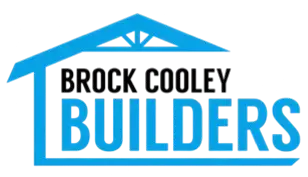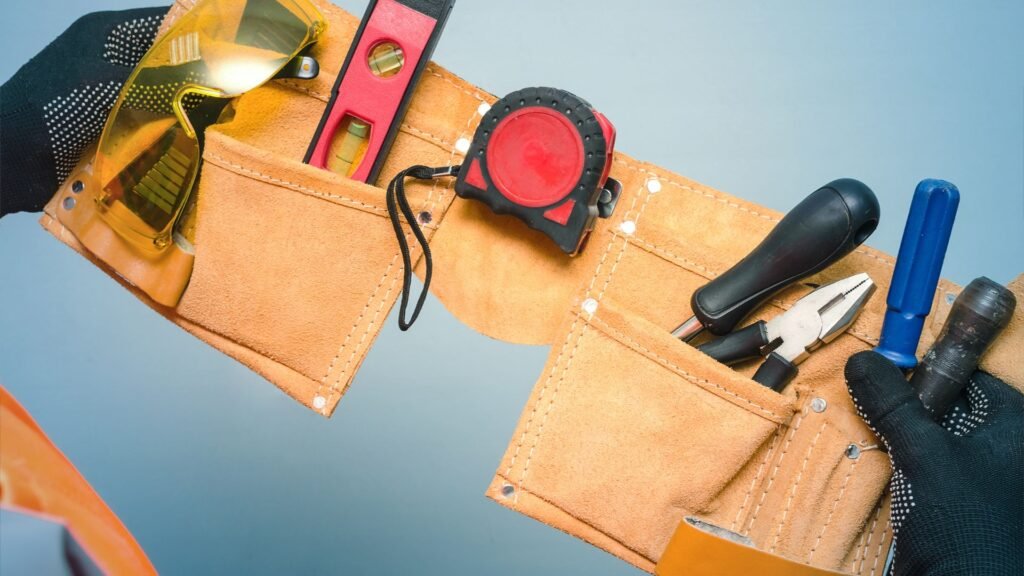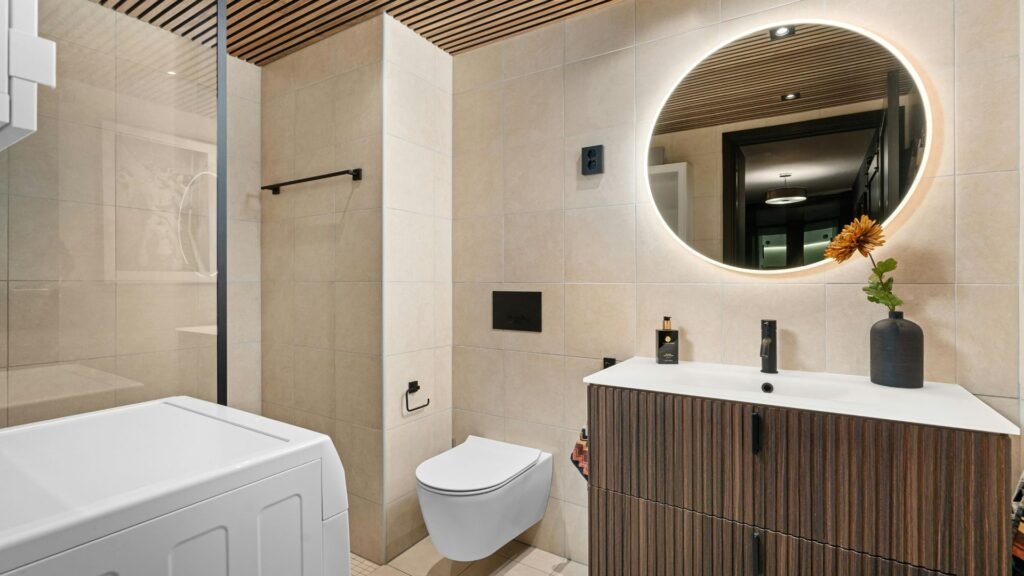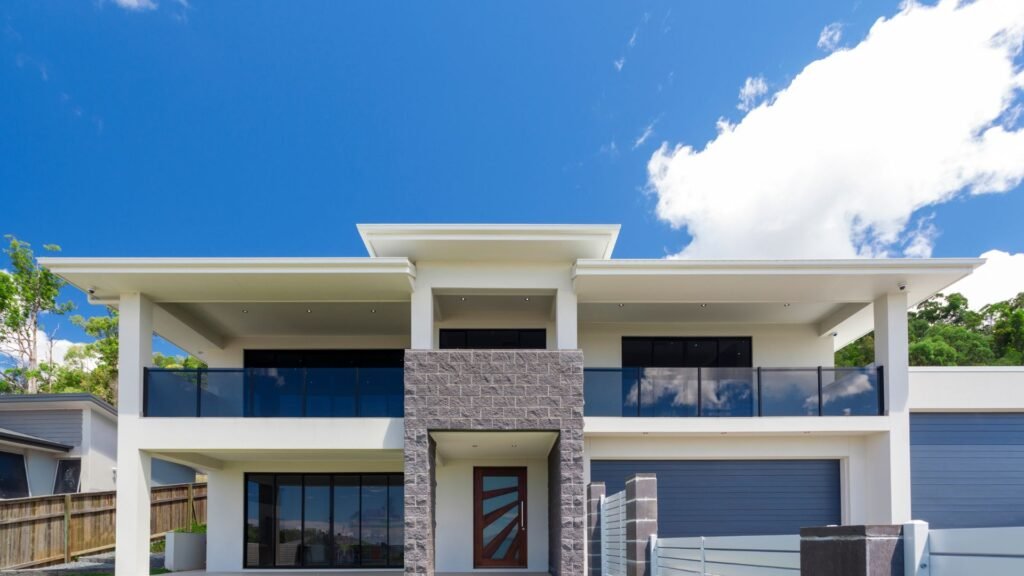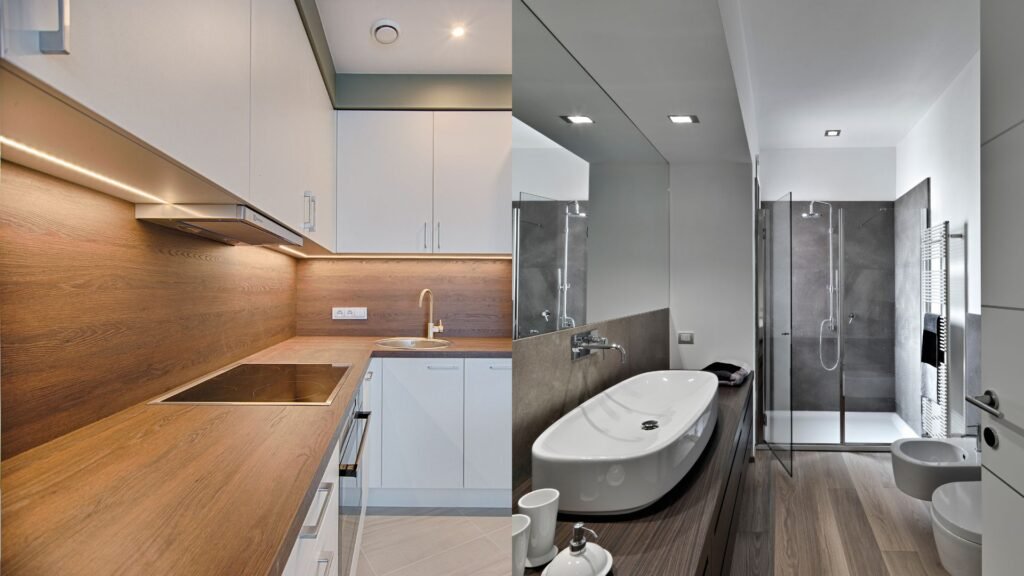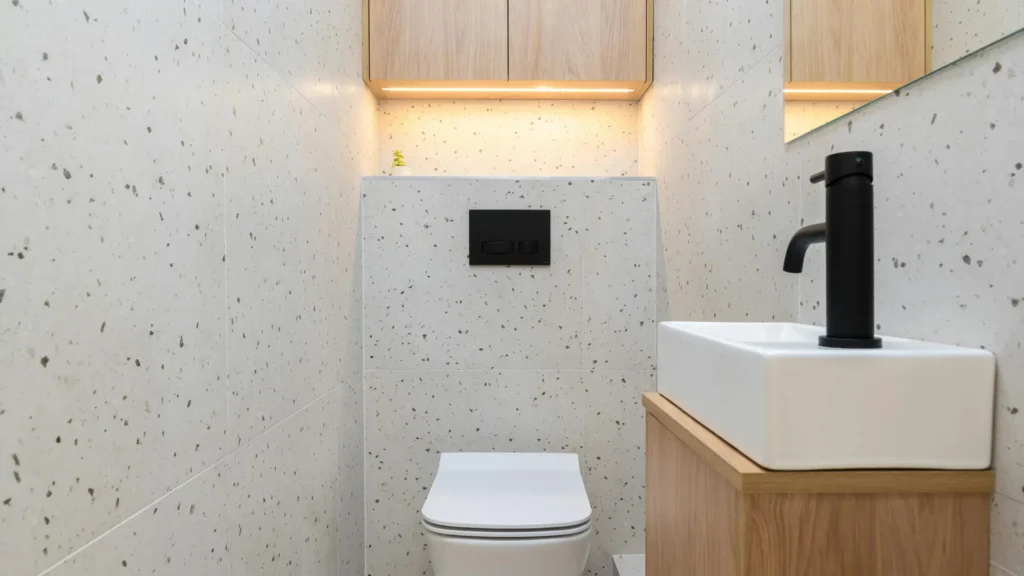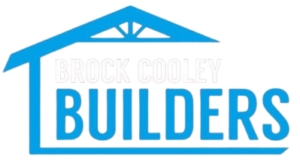Welcome to your go-to guide for making sure the builder you hire in New Zealand is qualified, licensed, and trustworthy. Whether you’re planning a renovation or building from the ground up, checking a builder’s credentials isn’t just a formality, it’s a key step in protecting your home, your money, and your peace of mind. In this post, you’ll learn how to verify licenses, understand what qualifications matter, spot red flags, and ask the right questions before signing any contract.
To check a builder’s credentials in NZ, search their name on the Licensed Building Practitioners Register. Confirm they hold a current LBP license, review their trade qualifications, and ask for proof of insurance and client references. You can also look for memberships with trusted groups like Master Builders or Certified Builders.
Table of Contents
What “Credentials” Actually Mean In NZ
When you’re planning a home build or renovation in New Zealand, the word “credentials” gets thrown around a lot. But what does it really mean when someone says a builder is “qualified”? In NZ, credentials usually refer to licensing, registration, and industry membership, each with its own meaning and level of trust.
Licensing vs Registration vs Membership
A licensed builder holds official approval to carry out or supervise certain building work under the government-regulated Licensed Building Practitioner (LBP) scheme. Licensing proves they’ve met skill and experience requirements in their field, whether it’s carpentry, site supervision, or design. You can verify this license through the public register on the Building Practitioners Board website.
- Registration, on the other hand, is more general. Anyone can say they’re a “registered builder” without meeting strict criteria unless they are part of a regulated program. That’s why it’s not enough to take the term at face value, always ask for their LBP number.
- Membership in a professional group like the Certified Builders Association of New Zealand (CBANZ) or the Registered Master Builders Association (RMBA) adds another layer of reassurance. These organizations have their own vetting processes, codes of conduct, and offer extra protections like workmanship guarantees. But being a member doesn’t replace the need for a valid LBP license if restricted work is involved.
Legal Requirements Under NZ Law
In New Zealand, the law is clear: Restricted building work must be completed or supervised by a Licensed Building Practitioner. This covers anything that affects a building’s structure or weather-tightness, like framing, foundations, or roofing. If a builder isn’t licensed and still takes on this type of work, they’re breaking the law. Worse, it could leave your project without proper council approval, no Code Compliance Certificate (CCC), and a tough time selling later.
Certified Builder Vs Licensed Building Practitioner (LBP)
A Certified Builder is someone who belongs to CBANZ and meets their entry standards, including having a trade qualification and proven experience. They often offer additional benefits like fixed-price contracts and build guarantees. But, and this is key, certified does not mean licensed.
An LBP is someone licensed by the Building Practitioners Board, under the oversight of the Ministry of Business, Innovation and Employment (MBIE). This license is a legal requirement for restricted work. So, while many certified builders are also LBPs, you shouldn’t assume it, always check.
Don’t just take a builder’s word for it. Verify their LBP status, ask about trade qualifications, and check if they’re part of a reputable trade group. It’s the only way to make sure your builder is truly qualified to handle your project under New Zealand law.
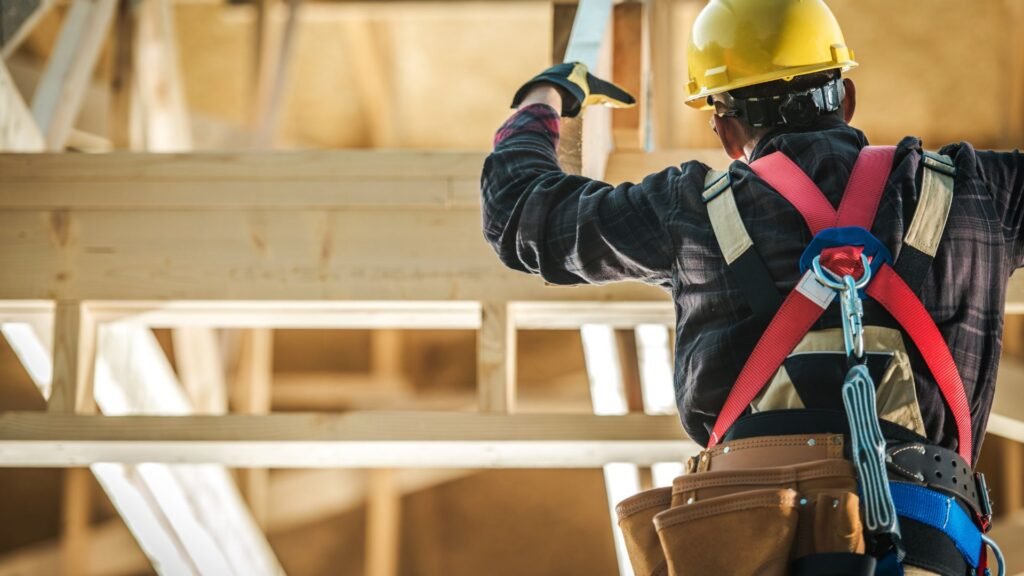
The Risk Of Skipping Credential Checks
Hiring a builder without checking their credentials might seem like a shortcut, but it can lead to serious and costly consequences. In New Zealand, construction and renovation projects must meet strict legal and quality standards. When you skip the credential check, you’re taking a gamble, one that often doesn’t pay off.
One of the most common issues is poor workmanship. Unqualified builders may cut corners, use substandard materials, or ignore building codes. The result? Leaks, cracks, uneven surfaces, and structural problems that can cost thousands to fix. You might save on the initial quote, but the repair bill later could be triple that amount.
Cost blowouts are another big risk. Builders who aren’t properly vetted may give vague or misleading quotes, then hit you with unexpected charges mid-project. Without a written contract or a licensed professional, you have little legal ground to push back. What started as a manageable budget quickly became unmanageable.
There are also legal consequences. If the builder isn’t a Licensed Building Practitioner (LBP), you may not qualify for protection under the Building Act. That means no official record of the work, no formal accountability, and no way to enforce quality or safety standards.
Future resale problems can also arise. If the work lacks a Code Compliance Certificate (CCC), many buyers and banks won’t touch the property. Even if the job looks fine on the surface, potential buyers might walk away because they can’t trust what’s behind the walls.
Here’s a simple example. A family in Auckland hired a builder found through a classified ad. The builder claimed to be experienced but wasn’t licensed. There was no contract, just a handshake. Six months later, the roof started leaking, and the council refused to issue a CCC. The homeowners had to hire another builder to redo the work, at double the cost, and lost time, money, and peace of mind.
Doing your homework up front may take a few extra hours, but it protects you from long-term stress, financial loss, and legal trouble. Always check your builder’s credentials before the first nail is hammered.
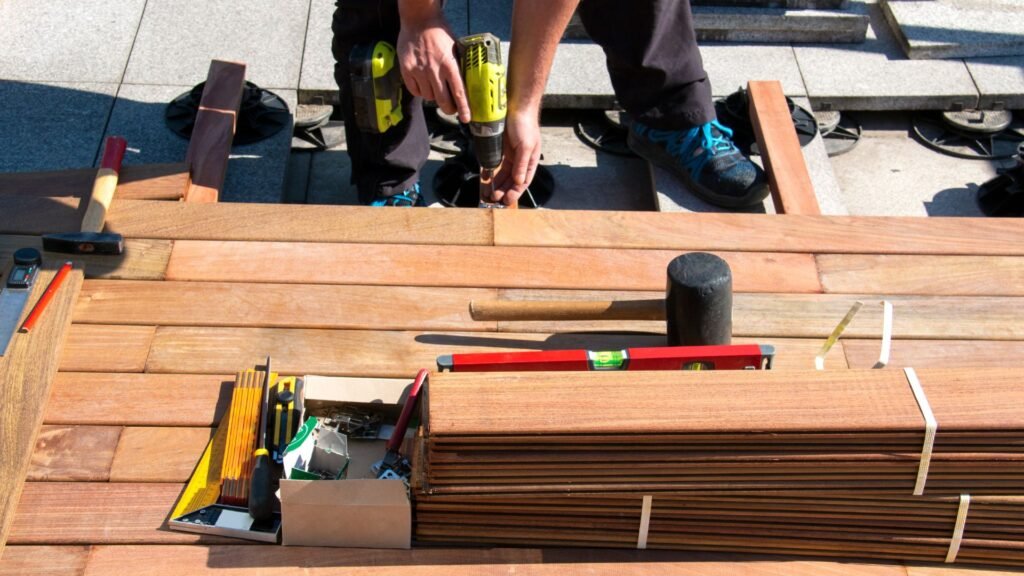
How To Check A Builder’s License In NZ
Before you hire a builder for any serious construction work, you need to verify that they’re legally allowed to do the job. In New Zealand, that means checking if they’re a Licensed Building Practitioner (LBP). The LBP scheme is regulated by the Ministry of Business, Innovation and Employment (MBIE) and was created to ensure builders meet professional standards. Here’s a simple, step-by-step guide to help you verify builder’s license in NZ and avoid hiring someone who’s not qualified.
Use The LBP Public Register
The easiest way to check a builder’s license is by using the official LBP public register. This tool is free and accessible online. You can search by the builder’s name, license number, or even the name of their business. Just visit https://lbp.ewr.govt.nz and enter the required details. Once you run a search, the register will show their licensing status, the classes of work they are licensed to do, and whether their license is active or expired.
What Details To Look For
When reviewing the LBP register, don’t just stop at whether a name shows up. Dig a little deeper. Check:
- That their license is currently active
- The type of work they’re licensed for (e.g., Carpentry, Site, Roofing)
- If there are any disciplinary notes or restrictions
- How long they’ve held their license
These details tell you not only if they’re qualified but also how experienced and reliable they are in the eyes of the licensing board.
What If They Aren’t Licensed? What To Ask Next
If the builder you’re considering doesn’t show up in the LBP register, don’t panic, yet. First, ask them directly if they’re licensed and get their full name and license number for a second check. Sometimes they might be operating under a company name or haven’t kept their profile updated. If they admit they aren’t licensed, ask:
- Will any part of the work require a building consent?
- Who will be supervising the restricted work?
- Can they recommend an LBP who can sign off the job?
Under New Zealand law, restricted building work must be done or supervised by a licensed practitioner. If the builder plans to do restricted work without a license, it’s a red flag, and you should seriously reconsider hiring them.
Verifying a builder’s license is a small step that can prevent large problems. Always take the time to verify the builder’s license in NZ before moving forward. It shows you’re serious about quality and compliance, and protects your investment from avoidable risks.
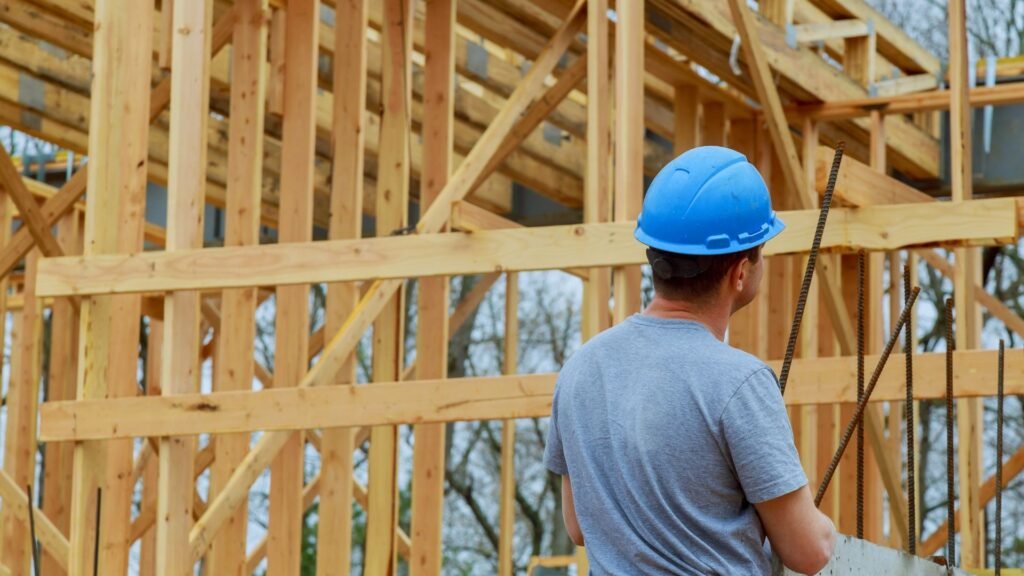
Red Flags When Hiring A Builder
Hiring the wrong builder can cost you thousands and leave you with unfinished or unsafe work. To protect yourself, it’s essential to watch for red flags early in the hiring process. These warning signs often show up before any tools hit the ground. Spotting them now can save you a lot of trouble later.
No Written Quote Or Contract
If a builder refuses to give a written quote or contract, that’s a clear signal to walk away. A professional builder should have no problem putting their pricing, timeline, and responsibilities in writing. Without a contract, you have no legal footing if something goes wrong. A handshake agreement might seem fine at first, but when disputes arise, you’ll wish everything was documented.
Avoids Council Consents
In New Zealand, certain types of building work require council approval. If your builder tells you to skip this step or suggests working “under the radar,” that’s a major concern. Avoiding consents can lead to fines, delays, or even demolition notices. You may also struggle to sell the property later if the work wasn’t properly signed off.
Pushes Cash Deals
While some tradies offer small discounts for cash, be cautious if a builder insists on it or won’t provide an invoice. This could mean they’re avoiding tax, cutting corners, or not covered by insurance. You’ll also have no paper trail if you need to make a complaint or claim a warranty.
Can’t Provide Past Client References
A good builder will have happy customers and finished projects to back up their claims. If they dodge requests for references or make excuses, that’s a red flag. You should be able to speak with at least one or two past clients and ask how the project went, whether timelines were met, and if they’d hire the builder again.
If you notice any of these signs, trust your gut and walk away. It’s better to delay your project than to hire someone who may leave you with poor workmanship, budget blowouts, or legal trouble. Always do your homework and work with builders who are upfront, professional, and willing to be held accountable.
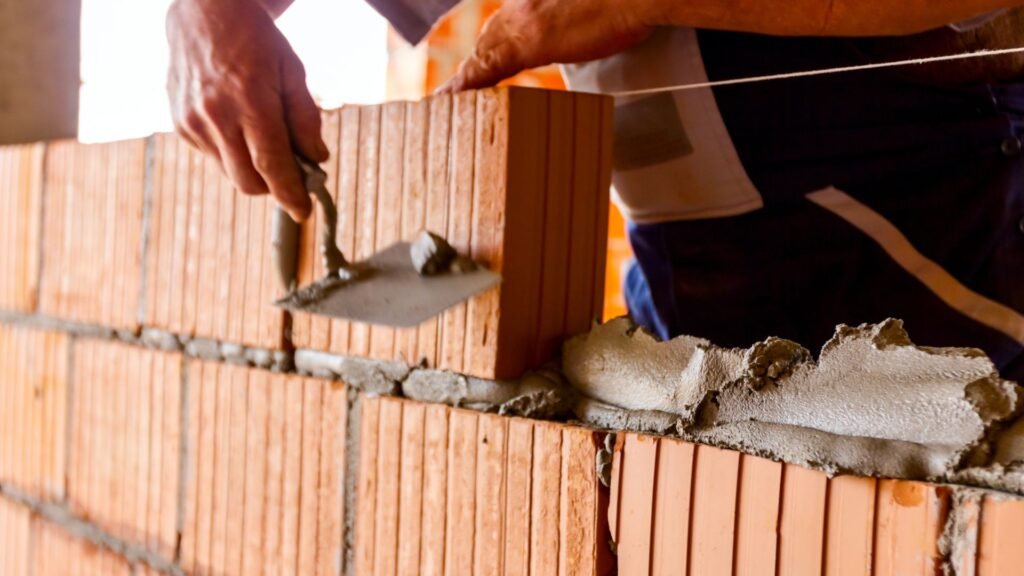
What Other Credentials To Look For
Checking if a builder is licensed is essential, but it’s not the only factor to consider. Other credentials give you more confidence in their skills, professionalism, and reliability. These extra checks help ensure the builder you hire can deliver high-quality work and stand by it if things go wrong.
- Trade qualifications are a good starting point. Look for formal training, such as the New Zealand Certificate in Carpentry. This qualification proves the builder has completed recognized training and passed assessments to meet industry standards. A qualified builder is more likely to follow best practices, meet building code requirements, and work efficiently on your site.
- Industry memberships add another layer of trust. Builders who belong to associations like Certified Builders or Master Builders must meet strict entry requirements. These organizations often check members for qualifications, work history, and business ethics. They may also offer ongoing training, which helps members stay current with building regulations and safety standards. Choosing a builder who’s part of one of these groups shows they take their work seriously and care about their reputation.
- Public liability insurance is another non-negotiable. If a builder accidentally damages your property, or someone gets hurt on-site, this insurance covers the cost. Without it, you might be left paying out of pocket. Always ask for proof of current coverage before signing any contract.
You should also ask about workmanship guarantees. Builders who offer written guarantees stand behind the quality of their work. One of the most trusted in New Zealand is the Master Build 10-Year Guarantee. This guarantee covers things like structural defects, loss of deposit, and even non-completion. It’s a strong sign that the builder operates a stable, well-run business and works to high standards.
By checking these extra credentials, trade qualifications, association memberships, insurance, and guarantees, you reduce the risks and make smarter hiring decisions. It’s about protecting your project from start to finish.
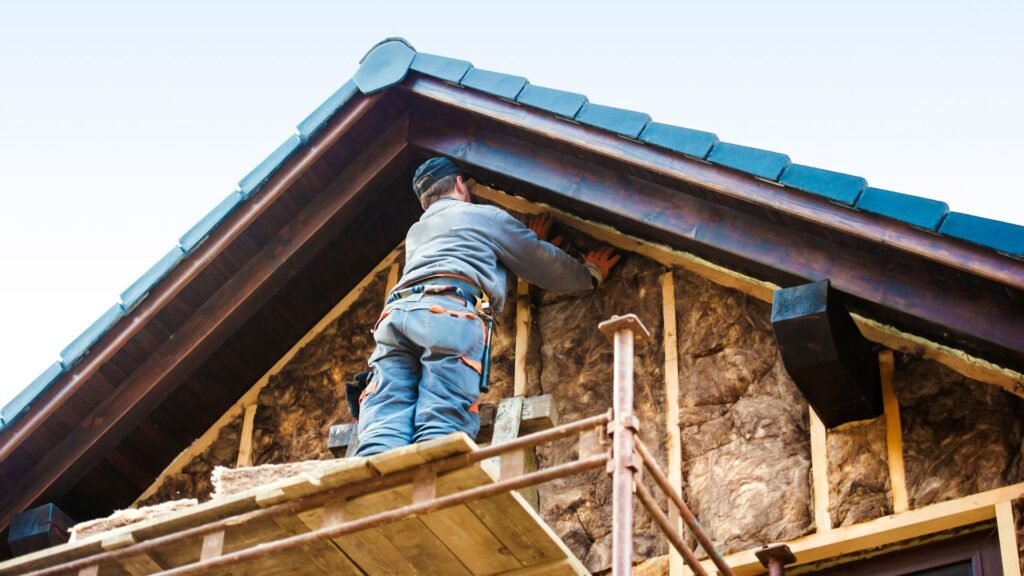
What To Do If A Builder Fails The Check
Discovering that a builder doesn’t meet the standards you expected can be frustrating, but it’s better to catch issues early than to deal with a disaster later. If a builder fails your credential check, whether they’re not licensed, can’t show insurance, or avoid providing references, it’s time to act quickly and professionally.
Start by confronting the builder with the facts. Be polite but firm. Explain what you found and why it concerns you. For example, if their name doesn’t appear in the Licensed Building Practitioners (LBP) Register, ask them to clarify. If their insurance is expired or they can’t back up claims about past work, let them know that you can’t proceed until you’re confident everything checks out. Avoid making assumptions or accusing them without evidence, stick to what you can verify.
If they get defensive, dodge your questions, or pressure you to move forward anyway, walk away. A reputable builder will welcome your questions and be ready to back up their credentials. No legitimate professional will take offense at being asked to prove their qualifications.
When you decide not to proceed with a builder, you don’t need to start from scratch. Turn to trusted platforms like Builderscrack, NoCowboys, or your local community Facebook groups. Ask friends, family, or neighbors for referrals, people you trust are often your best source of reliable recommendations. You can also look for builders who are part of Master Builders or Certified Builders, as these groups have strict membership requirements.
Finally, if a builder gives you fake information, uses someone else’s license number, or makes false claims about their qualifications, report them. In New Zealand, you can contact the Ministry of Business, Innovation and Employment (MBIE) or the Building Practitioners Board. These bodies can investigate, issue warnings, and in some cases, revoke licenses. Reporting isn’t about revenge, it helps protect other homeowners from falling into the same trap.
By taking these steps, you protect your investment and help raise the standard across the industry. Builders who are honest, skilled, and qualified won’t mind the scrutiny, and those are the ones you want working on your home.
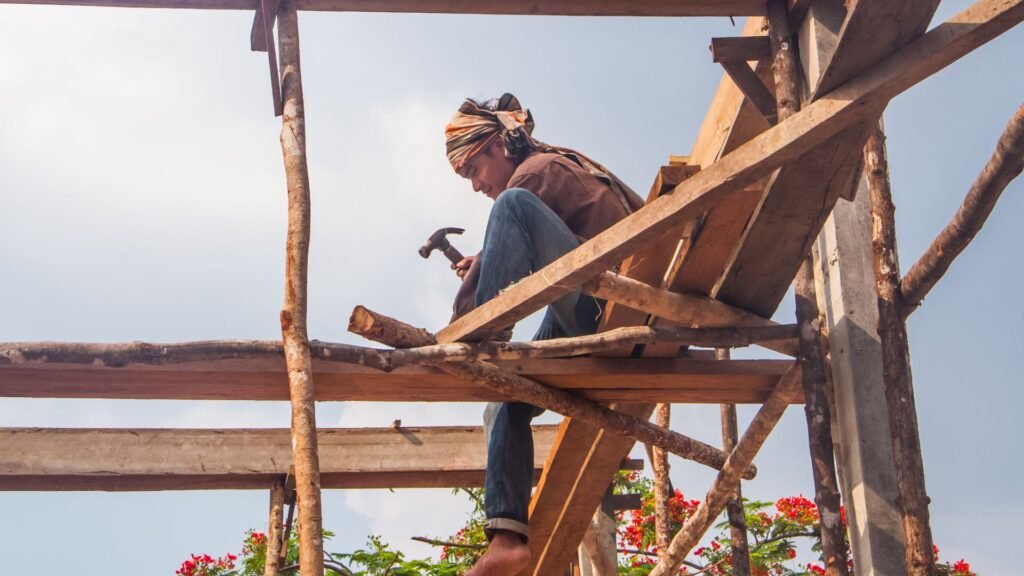
Tools & Resources For Kiwis
If you’re planning to hire a builder in New Zealand, knowing where to look for trusted information makes the process smoother and safer. There are several reliable tools and resources designed to help everyday Kiwis check builders’ qualifications, compare reviews, and lodge complaints if things go wrong. These platforms are publicly available, easy to access, and regularly updated with accurate details.
Start with the Licensed Building Practitioners (LBP) Register, a government-run database where you can search for a builder by name or license number. This tool confirms whether a builder is legally licensed to carry out restricted work. It also shows their areas of qualification and licensing history, helping you avoid unlicensed operators.
If you’ve had a negative experience with a builder, such as substandard work or misleading claims, you can file a formal complaint through the MBIE (Ministry of Business, Innovation and Employment). Their complaints page explains how the process works and what supporting evidence you’ll need to include. This is the official channel for reporting serious issues and holding professionals accountable.
To learn more about your rights and responsibilities as a homeowner, visit the Consumer NZ guide on hiring tradies. It breaks down everything from contract basics to payment protection and dispute resolution. It’s a helpful resource if you’re hiring for the first time or unsure what to expect from the process.
For added peace of mind, you might also want to work with builders affiliated with trusted associations. The Master Builders website lets you find professionals who offer written guarantees, follow strict building standards, and are backed by one of NZ’s most reputable trade bodies. You can also verify membership details directly through their platform.
Finally, comparison platforms like Builderscrack.co.nz and NoCowboys allow you to browse builder profiles, read customer reviews, and request quotes. These websites help you make informed decisions based on real feedback, not just advertising or word of mouth.
Using these tools together gives you a well-rounded view of any builder you’re considering. Don’t rely on one source alone, cross-check credentials, look at reviews, and take the time to do your research. It’s the smartest way to protect your home and your budget.
Don’t risk your project with unverified contractors. Visit Builders Queenstown to connect with licensed, qualified builders across New Zealand, no guesswork, just proven professionals.

FAQs: About Checking Builders’ Credentials In NZ
Why is it important to check a builder’s credentials in NZ?
Checking credentials helps you avoid unqualified builders, poor workmanship, and legal issues. It ensures your project complies with NZ building regulations and is protected under the Building Act.
What is an LBP and why does it matter?
An LBP (Licensed Building Practitioner) is someone who is legally approved to carry out or supervise restricted building work in New Zealand. Hiring an LBP gives you legal protection and ensures the builder meets professional standards.
How can I verify if a builder is licensed in NZ?
Use the official LBP Register at https://www.lbp.govt.nz/ to search for your builder by name or license number. You’ll see their license status, class of work, and history.
Are builders legally required to be licensed in NZ?
Only if they are performing restricted building work, such as structural or weather-tightness work. For other general work, licensing is recommended but not always mandatory.
What are the signs of a trustworthy builder?
Trustworthy builders offer written contracts, show proof of insurance, provide references, and clearly explain consent processes. They’re also upfront about pricing and timelines.
What red flags should I watch out for when hiring a builder?
Avoid builders who insist on cash deals, lack references, don’t want to get council consent, or can’t provide licensing or insurance details.
Can I trust a builder who isn’t a member of a trade association?
Membership with Certified Builders or Master Builders is a strong trust signal, but not mandatory. Still, you should verify their LBP status and ask for credentials before hiring.
How do I check if a builder has insurance?
Ask to see a copy of their public liability insurance certificate. Make sure it’s current and covers the scope of your project.
What questions should I ask a builder before signing a contract?
Ask about their LBP status, past projects, insurance cover, trade qualifications, timeline, subcontractors involved, and whether they provide written contracts.
What can I do if I find out my builder isn’t properly qualified?
Avoid proceeding with the project. You can report concerns to the Ministry of Business, Innovation and Employment (MBIE) or the Building Practitioners Board. Always consider other verified builders.
Conclusion
Verifying a builder’s credentials in New Zealand is more than just a smart step—it’s a safeguard for your time, money, and peace of mind. Whether you’re building a new home or tackling a renovation, choosing someone who is licensed, qualified, and transparent can save you from costly mistakes and future regrets. It’s always better to walk away from a builder who doesn’t meet your expectations than to rush into a contract with someone who cuts corners. Take the time to check licenses, review references, and ask direct questions before committing to any agreement. Doing your homework now will help ensure your project runs smoothly and is completed by someone you can trust.
